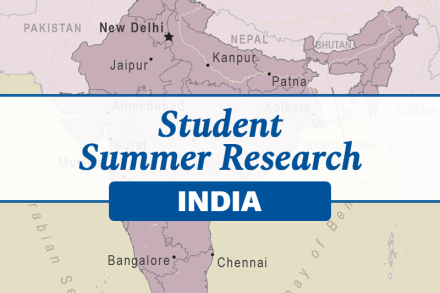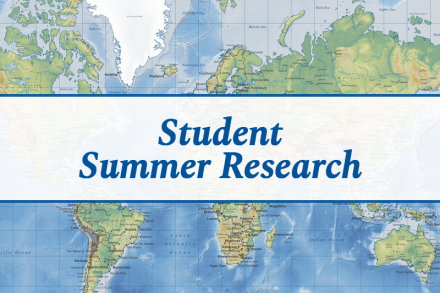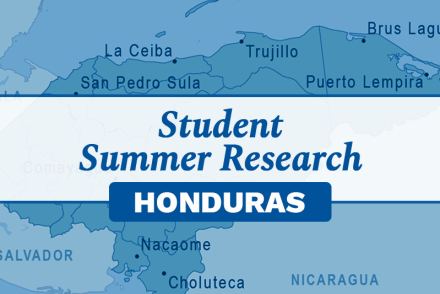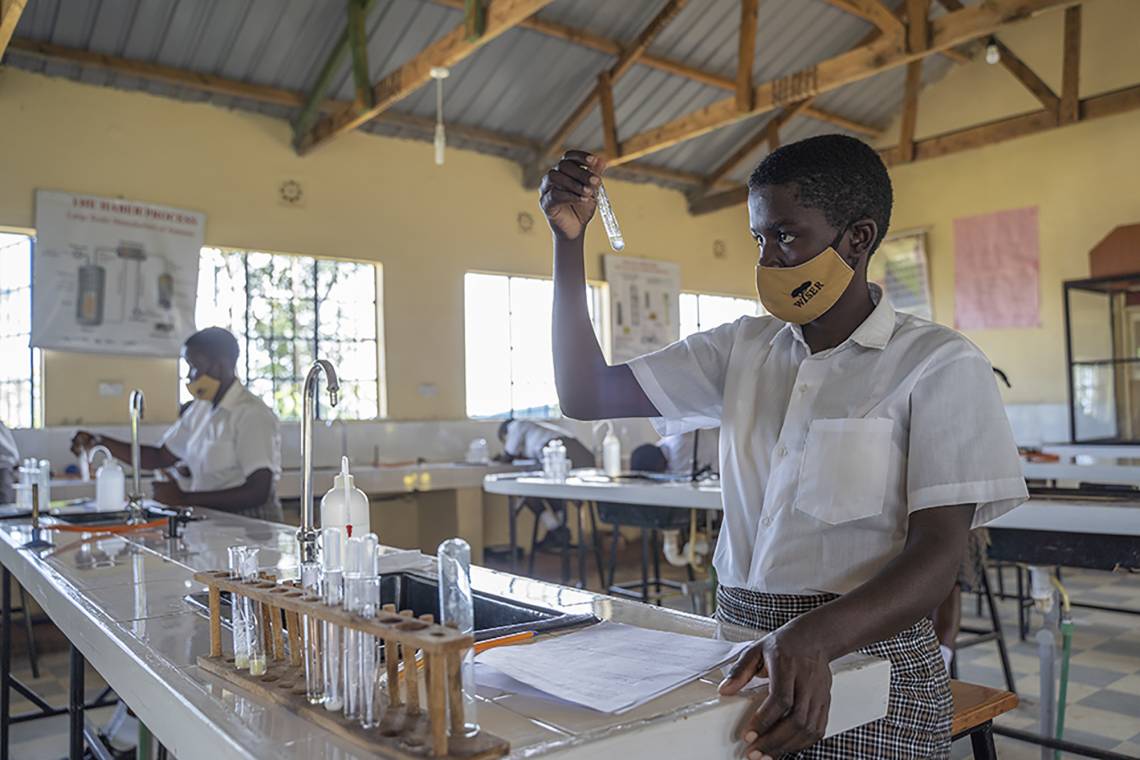Published December 15, 2021, last updated on January 4, 2022 under Around DGHI
In so many ways, 2021 felt like a bad sequel to a movie we wish we’d never seen in the first place. Despite the rapid development of vaccines, COVID-19 continued to cast a long shadow on the year, claiming too many lives and disrupting health systems and economies worldwide.
And so once again, our annual tradition of looking back at memorable stories from the year brings mixed feelings. While 2021 saw many DGHI experts rise to meet the world’s moment of need, it also reminded us of the things we continue to miss, like seeing our students scatter across the globe to do field research or hosting our global partners on campus.
But our list offers glimmers of hope, too – stories of ingenious innovation and dogged perseverance against some of our biggest health challenges. Let’s hope for more of that in the year to come. Here are our picks:
Voices Against Vaccine Nationalism
A dominant refrain in DGHI’s news from the past year was the strong, consistent warning about the risks of inequitable vaccine distribution. Indeed, in DGHI’s first online event of the year, global health experts from several countries cautioned that wealthy countries were hoarding vaccines at the world’s peril. Throughout the year, DGHI experts such as Krishna Udayakumar, Andrea Taylor, Gavin Yamey, Lavanya Vasudevan and Mike Merson did hundreds of interviews and wrote hundreds of articles arguing for more equitable sharing of vaccines with low- and middle-income countries, including an open letter to the Biden administration calling on U.S. leadership to hasten the pace of global vaccinations.
As our story from November details, much more needs to be done to close the gap between vaccine haves and have-nots. But the efforts of Duke and DGHI experts to rally global leadership and aid in-country vaccination campaigns have nudged the needle a little further toward equity.
Research News
Getting Vaccines From Airports to Arms
As low-income countries struggle to gain access to COVID-19 vaccines, Duke researchers work to address the many obstacles that stand in the way of global herd immunity.
Read More
A Visit with America’s Doctor
In February, DGHI welcomed Dr. Anthony Fauci, the chief medical adviser to U.S. President Joe Biden, for an inside look at the role of science in the nation’s pandemic response. The virtual event, DGHI’s fourth annual Victor J. Dzau Distinguished Lecture in Global Health, offered a refreshing and insightful take on the life and work of a scientific icon. In a 45-minute interview with Duke alumnus and PBS talk show host David Rubenstein. Fauci showed both his deep knowledge and disarming sense of humor, including his scoop on vaccinating Santa Claus.
Voices of DGHI
Dr. Fauci and Former Blue Devil Rubenstein Discuss Leadership, Life
The Chief Medical Advisor to President Joe Biden informed and charmed us during his...
Read More
The Social Context of Sickle Cell Disease
Sickle cell disease may be passed on through genes, but the full picture of the blood disorder goes well beyond the boundaries of genetics. In a landmark paper published in March, DGHI professor Charmaine Royal described sickle cell as a “paradigm-creating kind of disease” that should be studied in a broader context, including exploration of the social and environmental factors that influence disease outcomes. In this story, Royal describes her 20-year journey to understand the disease and its impact on patients and communities, and how her recent paper marks the culmination of a dream.
Research News
Sickle Cell Disease: More Than A Genetic Condition
In a new paper in Advanced Genetics, Dr. Charmaine Royal and colleagues say an array of factors — including environmental and social conditions — shape the course of illness.
Read More
Searching for the Source
DGHI virologist Linfa Wang, who works at the Duke-NUS Medical School in Singapore, has earned the nickname, “Batman,” for his deep understanding of bats – and especially their unique ability to harbor viruses that sometimes make the jump to humans. In this article for the Duke School of Medicine’s online magazine, Magnify, we explored Wang’s efforts to find the origins of the SARS-CoV-2 virus, and why tracing pathogens back to their animal sources is so important for preventing future pandemics.
A Life-Saving Innovation
When Duke students won the top prize at the 2021 Bay Area Global Health Innovation Challenge in May, it reminded us of the essential role students can play in bringing life-saving innovations to low-resource settings. In this case, students at Duke and Makerere University in Uganda have been designing tools to enable surgeons to operate on newborns with gastroschisis, a birth defect often fatal in African countries. The same project is now working to create tools to expand access to laparoscopic surgery in Uganda and other countries.
Education News
Students Win Innovation Prize for Improving Surgery on Newborns
Device may allow surgeons in low-income countries to correct rare, often fatal birth defect.
Read More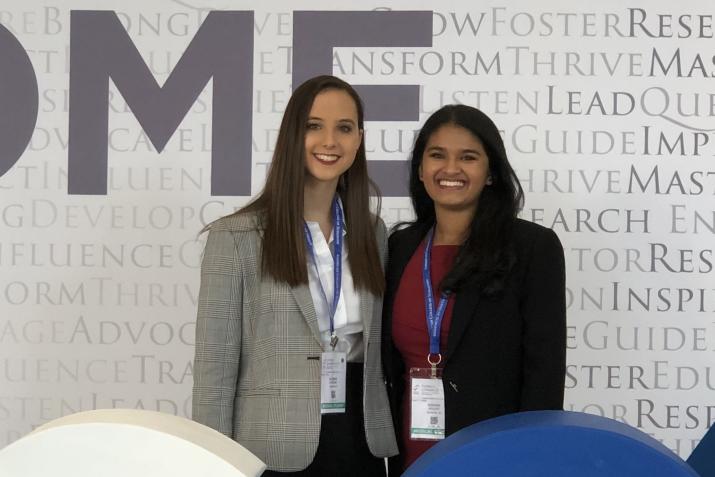
From Kenya to Durham
When the pandemic kept DGHI assistant professor Eve Puffer from traveling to Kenya, where she has been conducting research on family support and mental health for nearly a decade, she began looking for ways to help families in her own community. She teamed with DGHI colleague Rae Jean Proeschold-Bell and a Durham-based community organization to launch Coping Together, a peer-led intervention to help families deal with stress and improve communication. But the project represents more than just a creative redeployment of resources to aid families during a trying time; it’s a model for how lessons learned in one part of the world can be adapted to fit the needs and culture of another.
Research News
A Family Support Model Developed in Kenya Comes to North Carolina
The program, designed for places with low access to mental health care, could help...
Read More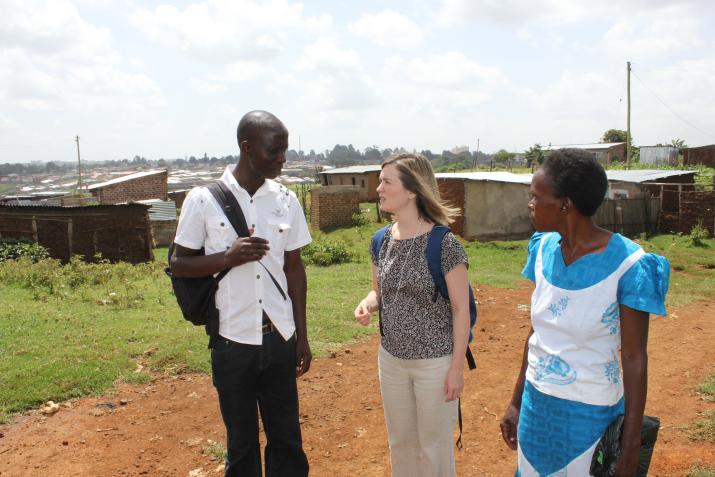
Two Leaders Reflect
Summer 2021 brought the semi-retirement of two luminary figures in Duke global health: Professors John Bartlett and Randy Kramer. In this wide-ranging conversation, Bartlett and Kramer reminisce about their experiences during the formative years of the institute and reflect on its remarkable evolution over the past 15 years. It’s a poignant look at where we’ve been – and how the institute’s past informs its ability to adapt to the changing dynamics of the field in the future.
Around DGHI
Tales From Two of DGHI's Pioneers
As they prepare for retirement, John Bartlett and Randy Kramer reflect on memorable moments from the institute's early days and its impact on their work.
Read More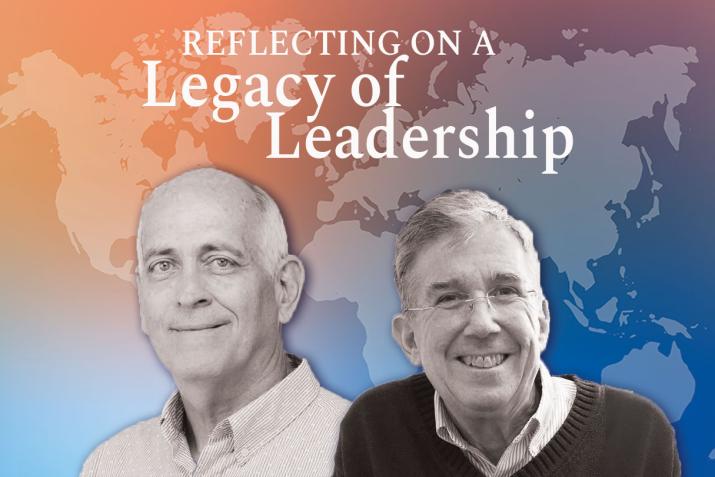
No Field, No Problem
One of the hallmarks of global health education at Duke is participation in hands-on research. While COVID-19 prevented travel to field research sites again this year, students quickly adapted, relying on early-morning Zoom calls and WhatsApp messages to collaborate with global partners and mentors. And in the process, many learned invaluable lessons about the flexibility and resilience it takes to respond to changing conditions and emerging challenges. Below are a few of our favorite stories where students reflect on their research projects. Also memorable was October’s Global Health Research Showcase, when more than three dozen global health students gathered on campus to present what they had learned.
A Simple Tool for a Complex Problem
Too often doctors in low-resource settings are limited not by their knowledge, but by their tools. Walter Lee, an otolaryngologist and DGHI affiliate, saw that firsthand on medical missions to Vietnam, where few clinics owned the optical devices that are often used to spot early signs of throat cancer. SO Lee enlisted the help of Duke biomedical engineering students to design a more affordable device. It’s an inspiring look at the very complex process of designing a simple medical tool.
Research News
The Simple Medical Device That Could Help Doctors Detect Throat Cancer
A DGHI doctor wanted to help colleagues in Vietnam spot tumors earlier. With the help of Duke engineering students, he’s about to test a solution.
Read More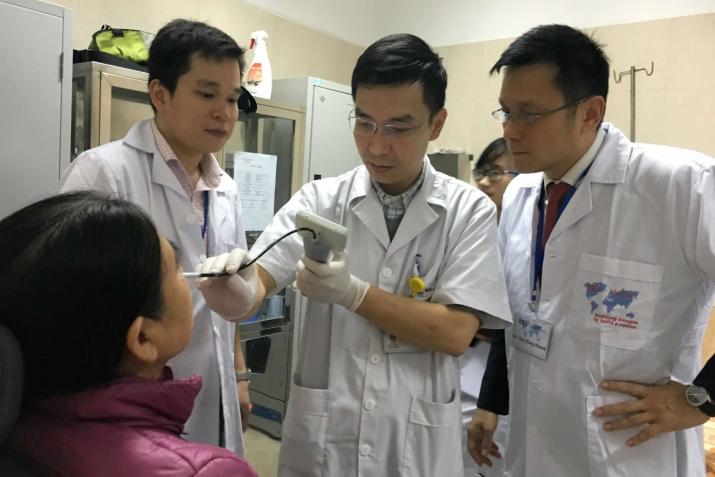
Checking the Math on Impact Stats
Many global health students and alumni fondly recall Liz Turner as the professor who made their biostatistics courses tolerable. In July, Turner and colleagues with the DGHI Research Design and Analysis Core reminded us why those lessons are so essential. In a paper in Lancet Global Health, the researchers showed how an alarming number of global health research studies don’t accurately represent data on the probability of outcomes, meaning that many may overstate the impact of their interventions. Alyssa Platt’s comparison using lottery tickets stands out as one of the most helpful explanations of complex math we’ve seen.
Research News
Are Global Health Trials Overstating Their Impact?
A new analysis asserts that many clinical trial results give an incomplete picture of...
Read More
Keeping Girls on Track
Last year, the United Nations reported an estimated 24 million children may never return to school following the pandemic. With that sobering statistic in mind, the success of the WISER Girls Secondary School in Kenya is as important as it is remarkable. Founded by DGHI professor Sherryl Broverman and operated by a nonprofit that she chairs, the school has managed to keep students enrolled and engaged through multiple challenges brought on by COVID-19. Duke science writer Robin Smith’s story shows how they did it – and why the school is a model for keeping girls on a path to success.
Putting Tanzania in the Driver’s Seat
As director of the Kilimanjaro Christian Medical Institute in Moshi, Tanzania, Blandina Mmbaga oversees one of DGHI’s longest-running and deepest global partnerships. And so we were delighted to share the news Mmbaga won a grant from the National Institutes of Health’s John E. Fogarty International Center to launch a new training program in Tanzania. With assistance from DGHI emergency medicine physician Catherine Staton, the program will allow Tanzanian students to conduct research related to prevention and care of injuries, which are a growing problem in many low- and middle-income countries.
Education News
Putting Tanzania in the Driver’s Seat on Injury Research
A new program led by DGHI’s long-time Tanzanian partner will fund African students’ research on injury prevention and care.
Read More

